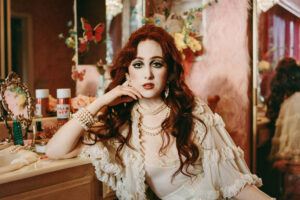“Death is not the opposite of life, but a part of it.” — Haruki Murakami
This profound truth reminds us that death is an integral part of the human experience. Yet, in many cultures, discussions about the end of life are often avoided or approached with discomfort. As an end-of-life doula, I work to help individuals and their loved ones approach death with dignity, compassion, and understanding.
Understanding Grief and the End-of-Life Experience
Grief is a complex and deeply personal process. When facing the end of life, both the person transitioning and their loved ones experience a wide range of emotions. These include anticipatory grief—mourning the loss before it happens—and the sadness, confusion, or even relief that can follow.
Grief during this phase isn’t just about losing a loved one. It also encompasses the loss of shared dreams, plans, and the envisioned future. Death is more than a physical event; it carries emotional, spiritual, and psychological impacts for everyone involved.

What is an End-of-Life Doula?
An end-of-life doula acts as a compassionate guide through the final stages of life. Much like a birth doula supports new life, an end-of-life doula supports the process of leaving the world.
My role focuses on providing emotional, spiritual, and practical guidance to both the dying individual and their loved ones. This includes:
- Facilitating Difficult Conversations: Encouraging open discussions about death, fears, wishes, and legacy.
- Creating Sacred Moments: Guiding rituals, blessings, and meaningful farewells.
- Offering Emotional Support: Holding space for grief and creating an environment where emotions can be freely expressed.
- Practical Assistance: Helping with final arrangements, paying bills, and other end-of-life logistics.
- Crafting a Calming Ambiance: Using scents, music, and other personalized touches requested by the dying.
Above all, my role is to ensure that no one navigates this journey alone.
My Calling to End-of-Life Work
My journey to becoming an end-of-life doula began with personal loss. In the final months, weeks, and days leading up to my father’s passing, I spent countless hours in hospitals, nursing homes, and hospice care. During this time, I witnessed many individuals facing their final moments alone, without the support they needed.
This heartbreaking reality inspired me to take action. I knew that no one—neither the dying person nor their family—should endure such a profound experience in isolation. My father’s passing was made bearable by the strong support system of friends and family around us. That experience became a driving force for my work today.
Honoring the Full Journey of Life and Death
For me, being an end-of-life doula is about more than easing the dying process. It is about honoring the entirety of a life lived and the journey of saying goodbye.
This work is about embracing the full spectrum of human experiences, from joy to sorrow. It’s about being present for those facing their final chapter, offering a hand to hold, a listening ear, and a heart open to whatever the journey brings.
Death may be a part of life, but no one should have to face it alone.
By focusing on dignity, connection, and understanding, end-of-life doulas help navigate the complexities of grief with compassion—one step at a time.




